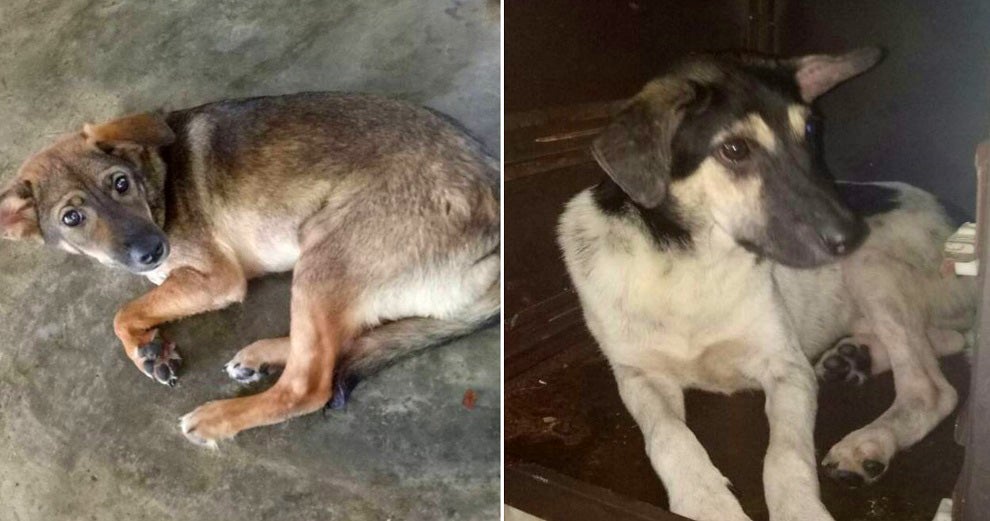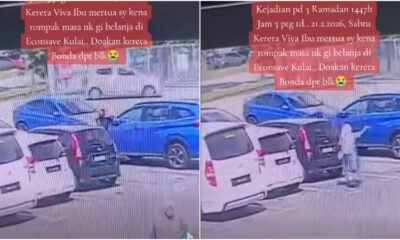This is getting out of hand!
By now, all Malaysians are surely aware of the alarming rabies outbreak in Sarawak and most recently in Perak, causing Penang to ban cats and dogs from entering the state. The outbreak has caused widespread worry due to recent deaths associated with the outbreak.
However, some may be taking this fear a little too far as reports of dogs and cats being poisoned have recently surfaced.
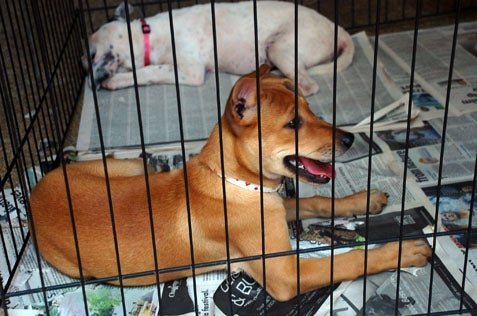
Source: citizen journalists malaysia
According to the Malay Mail, the Sarawak Society for the Prevention of Cruelty to Animals (SSPCA) have asked the media to stop sensationalising the rabies outbreak as it is causing widespread panic among members of the public.
There have been numerous reports of dogs and cats being poisoned by neighbours and other citizens because of this. Some media outlets have used terms such as “mad dog disease” or “mad dog”, inciting a lot of fear among the people.
SSPCA president Datin Dona Drury Wee emphasised that the media should just use the term “rabies.”
“We saw one video of a dog that had been poisoned and it was lying on the road, pawing in such pain,” said Wee.
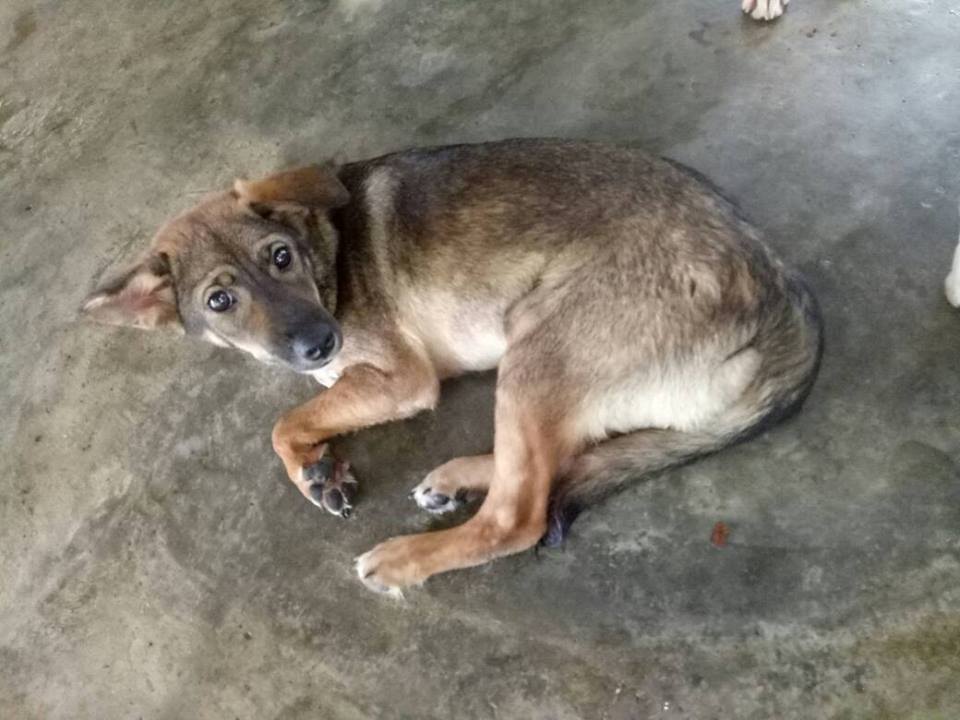
Source: facebook
Contrary to popular belief, rabies is not only carried by dogs, as cats and rodents can also carry the virus. Wee continued, “It is just that humans are more in contact with dogs in their daily lives, and so, 95 per cent of the human rabies incidents are caused by bites from rabid dogs.”
She also added that people cannot catch the virus if they are bitten by healthy and vaccinated animals.
So, how do you identify if a stray animal has received a rabies vaccination? Well, SSPCA released a poster informing the public about how to do so.
If you don’t see a stray with these markings, it’s safe to say that the animal is vulnerable to the virus and you should notify your local SPCA.
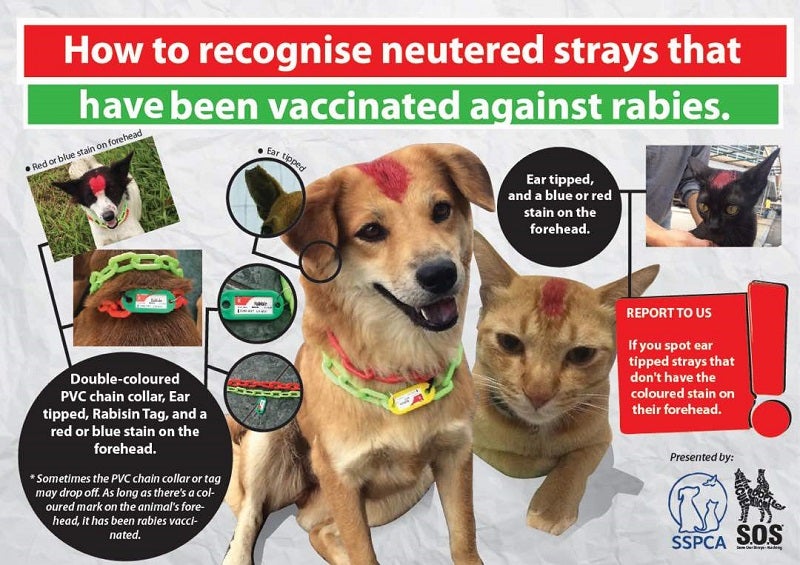
Source: malay mail
We should remain calm and trust the authorities to control the rabies outbreak. Killing innocent animals is not going to solve anything!
Also read: Two Sarawakian Kids Died Just Because Parents Couldn’t Afford RM40 Treatment

